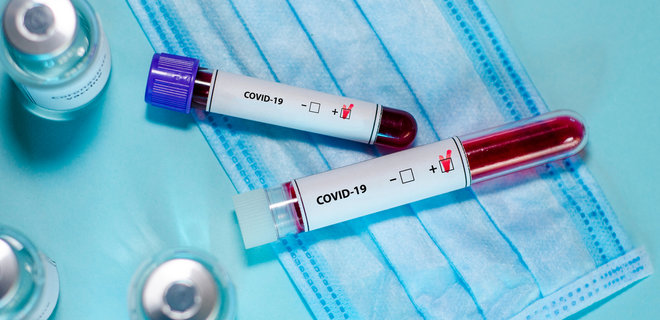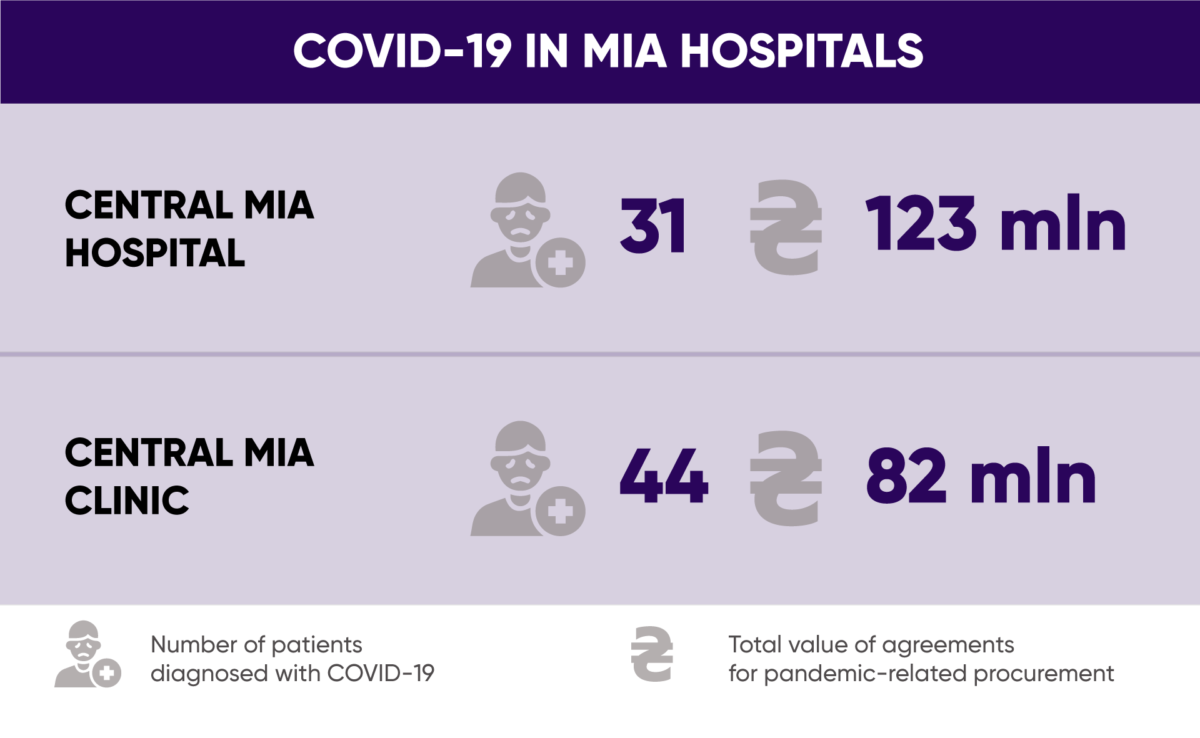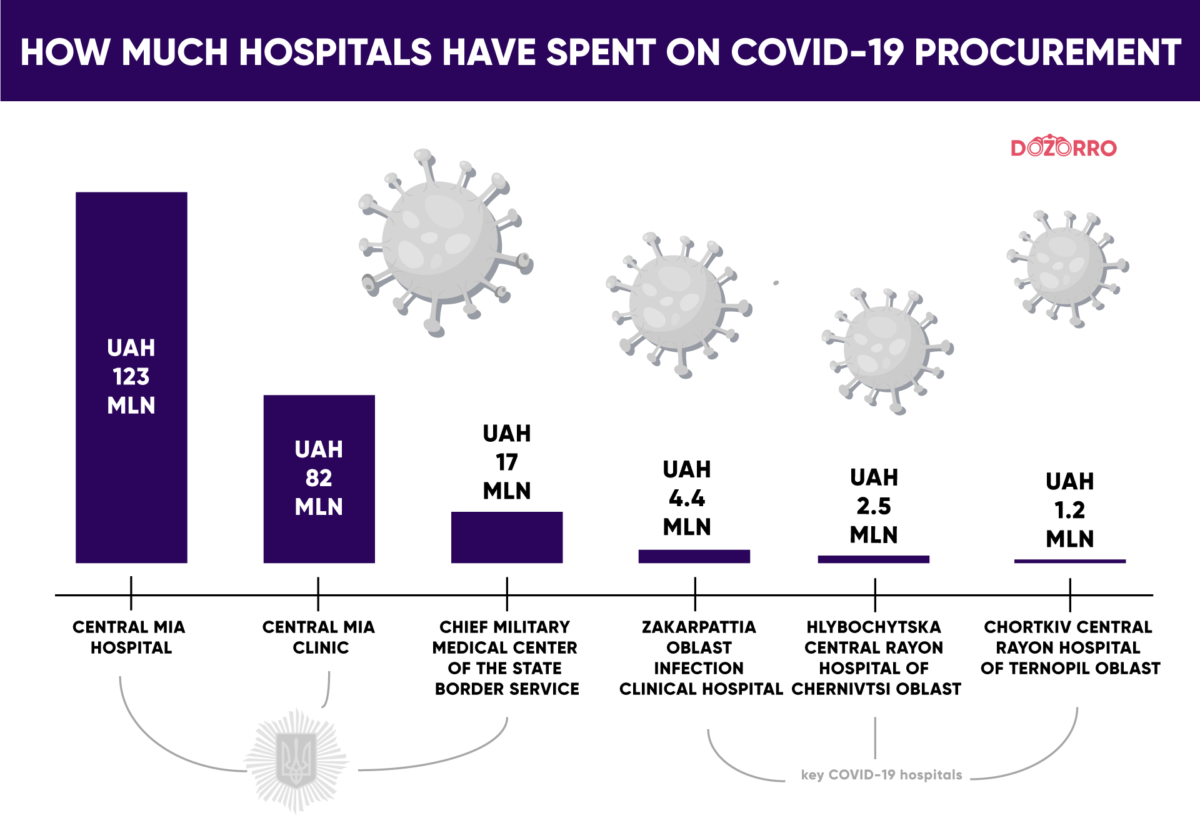

The coronavirus disease came to Ukraine in early March: the first confirmed case was recorded on March 3 in Chernivtsi. Just a week later, the government declared a national quarantine. The Anti-Coronavirus Fund was created to fight the outbreak, amounting to almost UAH 65 billion.
To redirect money to the Fund, the government had to cut funding for certain sectors. The biggest sufferer was culture, with funding reduced almost by half, or UAH 7 billion. They also reduced support for education by 5 billion. Even medical professionals took a toll, with reduced funding for continuing professional development.
Instead, the Verkhovna Rada increased the spending on the Ministry of Internal Affairs. Moreover, the Budget Committee of the Verkhovna Rada allowed allocating UAH 2.7 billion from the Fund to bonuses for law enforcement officers in connection with the pandemic.
This amount is greater than bonuses received by healthcare workers directly involved in taking care of the coronavirus patients.
Biggest Spenders
Since the beginning of the pandemic, Ukrainian doctors and public institutions have faced a shortage of high-quality medical equipment, as well as personal protective equipment. To speed up procurement, the government allowed the purchase of items necessary to fight against the virus under a simplified procedure, without holding a public tender. Certain crucial institutions still do not have enough protective equipment, even in our fourth month of the struggle against the virus.
However, as the DOZORRO project found out, the biggest procuring entity under the coronavirus procedure is — shockingly — the Ministry of Internal Affairs. Structures subordinate to the Ministry have already concluded agreements* for more than UAH 600 million through the coronavirus procedure.
For reference, primary hospitals and municipal institutions in Kyiv spent more than twice as little in the same period, UAH 230 million. Law enforcement accounts for over 14% of all coronavirus-related spending. This is more than the spending of 171 hospitals from 18 oblasts combined.
Law enforcement institutions used this money to buy PPE, disinfectants and medical equipment. A significant amount of spending has gone to medical institutions subordinate to Avakov. These are supposed to serve only former or current Ministry employees. The Ministry of Internal Affairs has spent over a third of the money on providing these hospitals with the necessary equipment: almost UAH 217 million.
Central MIA Hospital alone has been allocated over UAH 122 million. This money has been spent on the procurement of tests and PPE. At the same time, according to the Ministry of Healthcare, institutions subordinate to the Ministry of Internal Affairs are not considered “crucial,” or “key,” hospitals: when symptoms of the coronavirus disease are identified, law enforcement officers are also hospitalized in other medical institutions.
For example, overall, the “crucial” hospitals of the Chernivtsi region spent three times as little on coronavirus-related procurement as the Central MIA Hospital — UAH 38.3 million. This oblast has the highest number of identified coronavirus cases: as of the end of June, they were over 4,400. However, according to law enforcement officials, only about thirty people were treated in the MIA hospital during the entire pandemic.
The DOZORRO project has approached the Central MIA Hospital for a comment multiple times, but has not heard back as of the moment of writing.
What is more, medical establishments subordinate to the Ministry have been involved in journalist investigations about inflated prices in procurement multiple times. This includes the Central Hospital.
In early April, the MIA signed an agreement for the supply of ventilators with the newly created company Mriia Medical. Under the terms of the agreement, the company had to supply 50 foreign-made devices to the hospital. The price of one ventilator was more than UAH 1 million. In total, over UAH 51 million was supposed to be spent. However, journalists found that the market value of such devices was less than UAH 100-220 thousand per unit. After the outcry in the media, the procurement was canceled under the pretext that the equipment was no longer necessary.
The DOZORRO project found a similar situation with the procurement by Special Commandant’s Office for Security and Support of the State Border Service, also subordinate to the Ministry of Internal Affairs. The Office entered into an agreement for almost UAH 20 million with the Kyiv company Medgarant: it purchased three X-ray machines for healthcare establishments of the State Border Service for UAH 6.4 million each. When journalists requested a quote, Medgarant offered a much lower price for the same machine, UAH 4.6 million per unit. The Border Service claims it was their best price offer.
Procurement Where You Have to Know People
The main supplier of PPE for the Ministry of Internal Affairs is the state enterprise Fort, also subordinate to the MIA. Before the pandemic, Fort specialized in the development and manufacture of firearms and special equipment for law enforcement officers. But over the past few months, the state-owned enterprise has started supplying imported personal protective equipment to structures subordinate to the Ministry. During this time, more than a quarter of all MIA’s coronavirus-related expenses, almost UAH 154 million, ended up on Fort’s accounts. For this money, the company supplied protective masks and biohazard suits. As previously reported by Slidstvo.Info, Fort sold 1800 reusable respirator masks to the Service Center for the National Police of Ukraine divisions at inflated prices. The police bought respirators for UAH 4.7 thousand each, although before that, the Central Clinic of the Ministry of Internal Affairs bought such respirators 15% cheaper from the same enterprise.
Over UAH 60 million went to the company Technopolis 15. Before this year, the company had never won at public procurement. Notably, this company has ties to Viktor Polishchuk, the owner of Eldorado electronics chain and former owner of Mykhailivskyi bank, involved in a SIB criminal proceeding. Journalists of Bihus.Info have recently spotted the businessman visiting the Ministry building.
The coronavirus pandemic has affected not only those who are directly involved in overcoming the crisis. It also resulted in the closure of cultural projects and temporary suspension of educational projects. This includes the newly created Archive of National Memory. For the institution to start working, the building has to be reconstructed. Over UAH 57 million was allocated for this in the 2020 budget. However, this money was redirected to the needs of the pandemic. The Ministry of Internal Affairs, on the other hand, continues to work without cutting costs. In the spring, law enforcement officers announced a tender to renovate their hotel building in the center of Kyiv, allocating over UAH 37 million. The work was awarded to a person involved in a criminal proceeding and multiple journalist investigations.
Commenting on their spending, the Ministry explained that law enforcement officers were doing a high-risk job. According to Artem Shevchenko, head of MIA Communications Department, Ministry employees come in second by the coronavirus rate. He believes that the spread of the virus among law enforcement officials may undermine the national security. Therefore, the Ministry takes care of buying everything necessary to protect its employees and has prepared its healthcare establishments to receive the patients. Medical establishments subordinate to the Ministry have prepared over a thousand beds for former and current MIA employees.
* the entire text refers to current, terminated and completed agreements
The article was co-written by Oleksii Yarylchenko.









